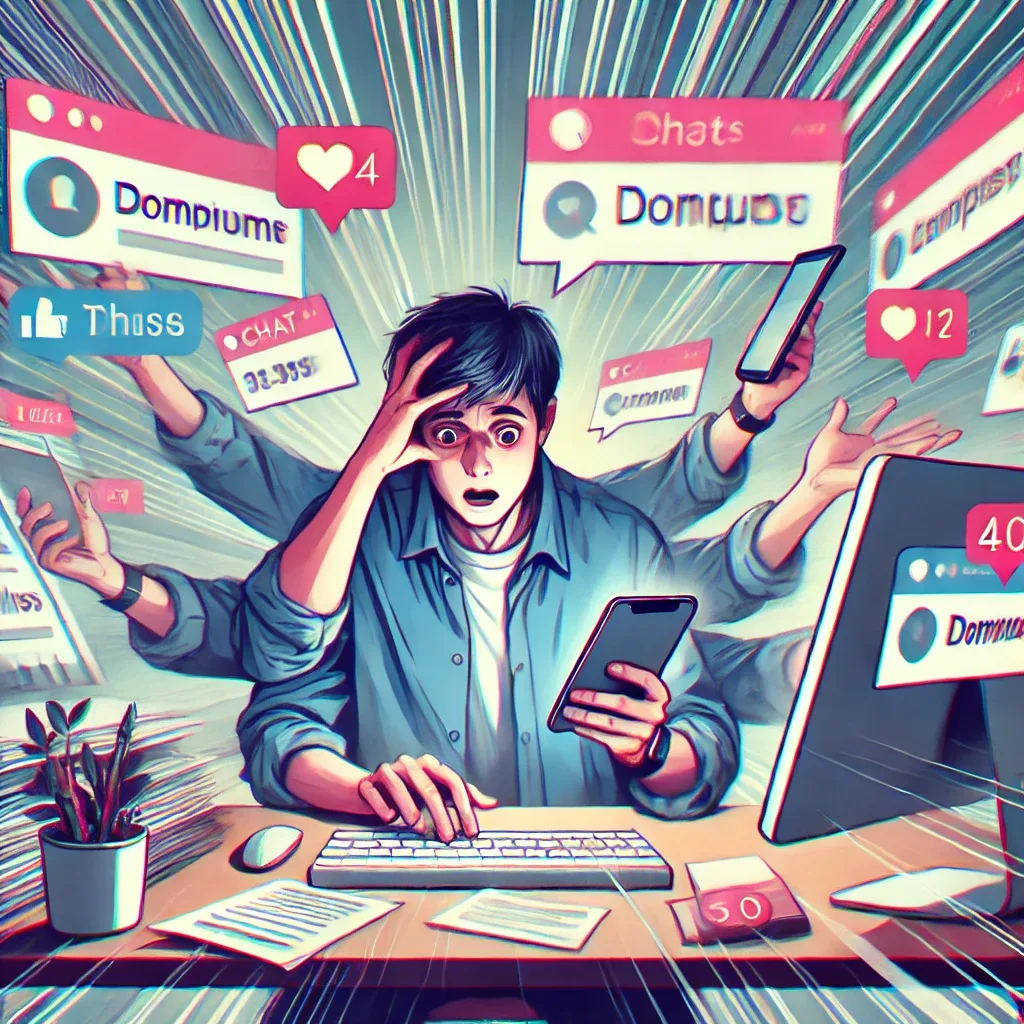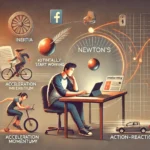
Why Multitasking is Slowing You Down
Picture this.
You’re writing an email for a client when your phone rings. It’s your wife, complaining about the neighbor’s noisy kids. While you listen, a message pops up—your buddy David is organizing a football match tonight.
You keep typing your email, nodding along to your wife’s story, and replying to David.
You feel like a productivity superhero. But are you really getting more done?
Now, imagine this.
Your final exams are coming up. You’re reviewing notes, focused. But your laptop screen is open to Threads, flashing updates. Spotify is playing the latest hits. Every few minutes, your best friend texts about bumping into a celebrity while shopping in Taipei.
You call it multitasking. You believe you’re studying efficiently.
But here’s the truth: You’re not.
The Cost of Multitasking: Context Switching
Multitasking isn’t doing two things at once. It’s switching between tasks really fast. And every switch slows you down.
Think of your brain like a computer with too many open tabs. Clicking between them isn’t free—it takes time and drains energy.
Here’s what happens when you switch tasks:
- Your brain needs to reload information. Each switch forces your mind to “set up” again, just like reopening a closed browser tab.
- Attention gets stuck on the last task. Even when you move on, part of your brain is still thinking about the previous task. This is called attention residue—and it makes focusing harder.
- Your stress levels rise. Every interruption forces your brain to work harder, increasing mental fatigue.
- Your memory struggles. Your brain can only hold a few things at once. Constant switching overloads it, making you feel scattered.
- You lose time. Research shows it takes up to 25 minutes to fully refocus after an interruption.
The result? You feel mentally exhausted, but you haven’t accomplished much.
How to Break the Multitasking Habit
Now that you know the cost of multitasking, here’s how to work smarter:
✅ Audit your distractions – Identify which apps, tools, or habits pull you away from deep work.
✅ Use time blocking – Set aside dedicated time for specific tasks. Stick to one task at a time.
✅ Turn off notifications – Disable non-essential alerts. Every ping costs you focus.
Multitasking creates shallow work. If you want better results, design your environment to protect your focus.
Your best work happens when your brain isn’t constantly switching gears.
Multitasking might feel productive, but it drains our focus and lowers our work quality. The real secret to getting more done? Single-tasking.
By training your brain to focus on one task at a time, you’ll work faster, feel less stressed, and produce better results.
Next time you feel the urge to juggle tasks, pause. Choose one thing. Give it your full attention. Your brain will thank you.



